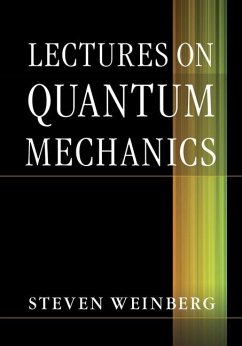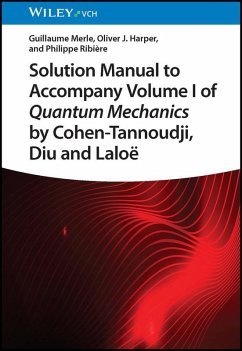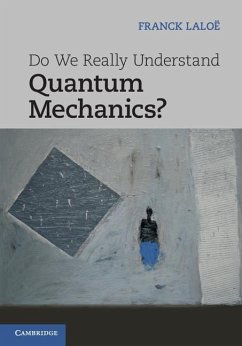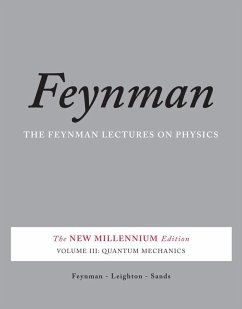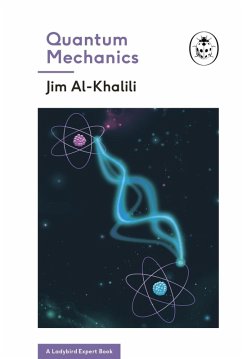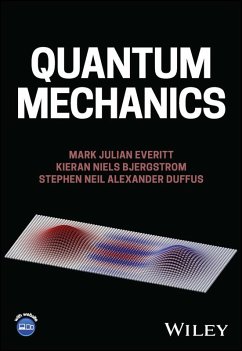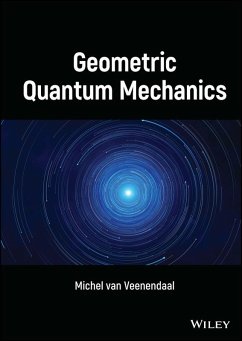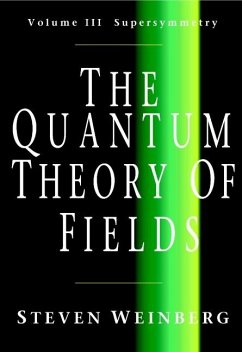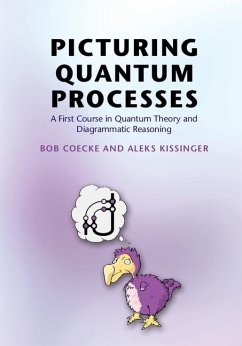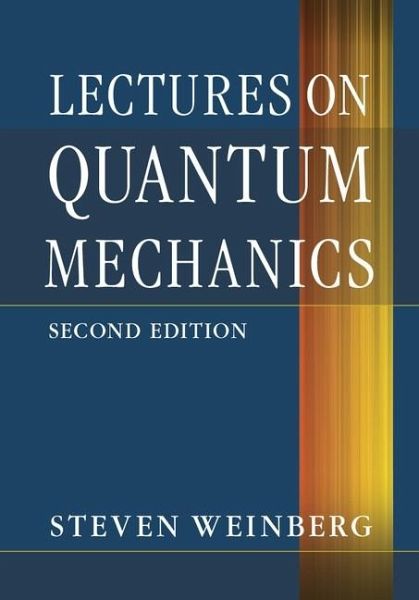
Lectures on Quantum Mechanics (eBook, ePUB)
Versandkostenfrei!
Sofort per Download lieferbar
30,95 €
inkl. MwSt.
Weitere Ausgaben:

PAYBACK Punkte
15 °P sammeln!
Nobel Laureate Steven Weinberg combines exceptional physical insight with his gift for clear exposition, to provide a concise introduction to modern quantum mechanics, in this fully updated second edition of his successful textbook. Now including six brand new sections covering key topics such as the rigid rotator and quantum key distribution, as well as major additions to existing topics throughout, this revised edition is ideally suited to a one-year graduate course or as a reference for researchers. Beginning with a review of the history of quantum mechanics and an account of classic soluti...
Nobel Laureate Steven Weinberg combines exceptional physical insight with his gift for clear exposition, to provide a concise introduction to modern quantum mechanics, in this fully updated second edition of his successful textbook. Now including six brand new sections covering key topics such as the rigid rotator and quantum key distribution, as well as major additions to existing topics throughout, this revised edition is ideally suited to a one-year graduate course or as a reference for researchers. Beginning with a review of the history of quantum mechanics and an account of classic solutions of the Schrodinger equation, before quantum mechanics is developed in a modern Hilbert space approach, Weinberg uses his remarkable expertise to elucidate topics such as Bloch waves and band structure, the Wigner-Eckart theorem, magic numbers, isospin symmetry, and general scattering theory. Problems are included at the ends of chapters, with solutions available for instructors at www.cambridge.org/9781107111660.
Dieser Download kann aus rechtlichen Gründen nur mit Rechnungsadresse in A, B, BG, CY, CZ, D, DK, EW, E, FIN, F, GR, HR, H, IRL, I, LT, L, LR, M, NL, PL, P, R, S, SLO, SK ausgeliefert werden.




